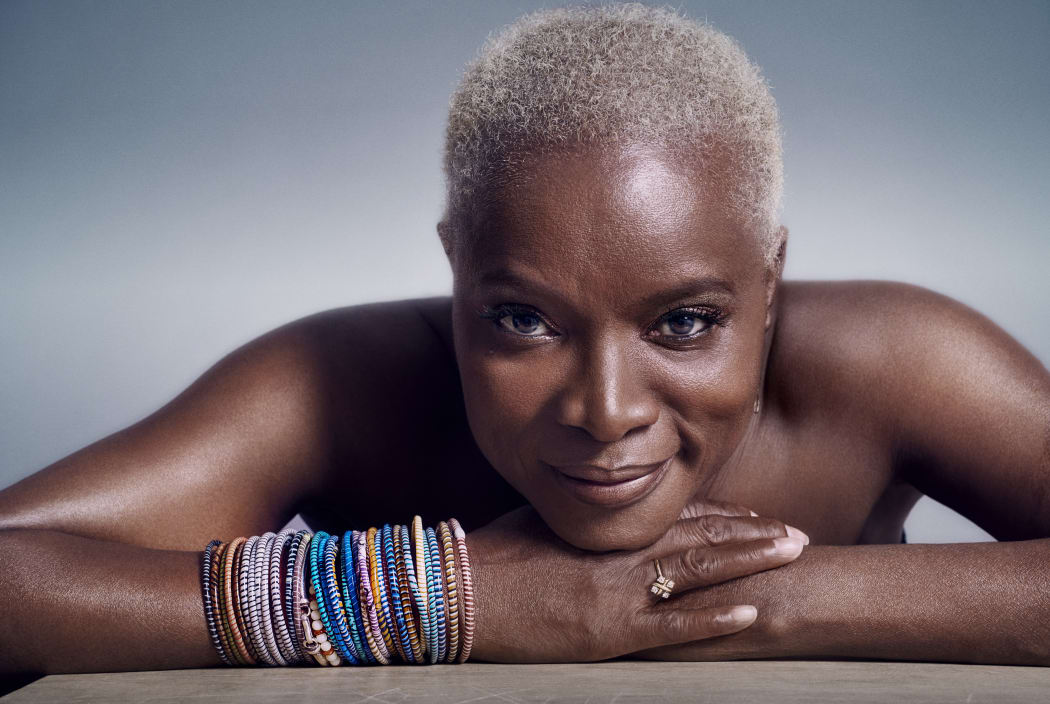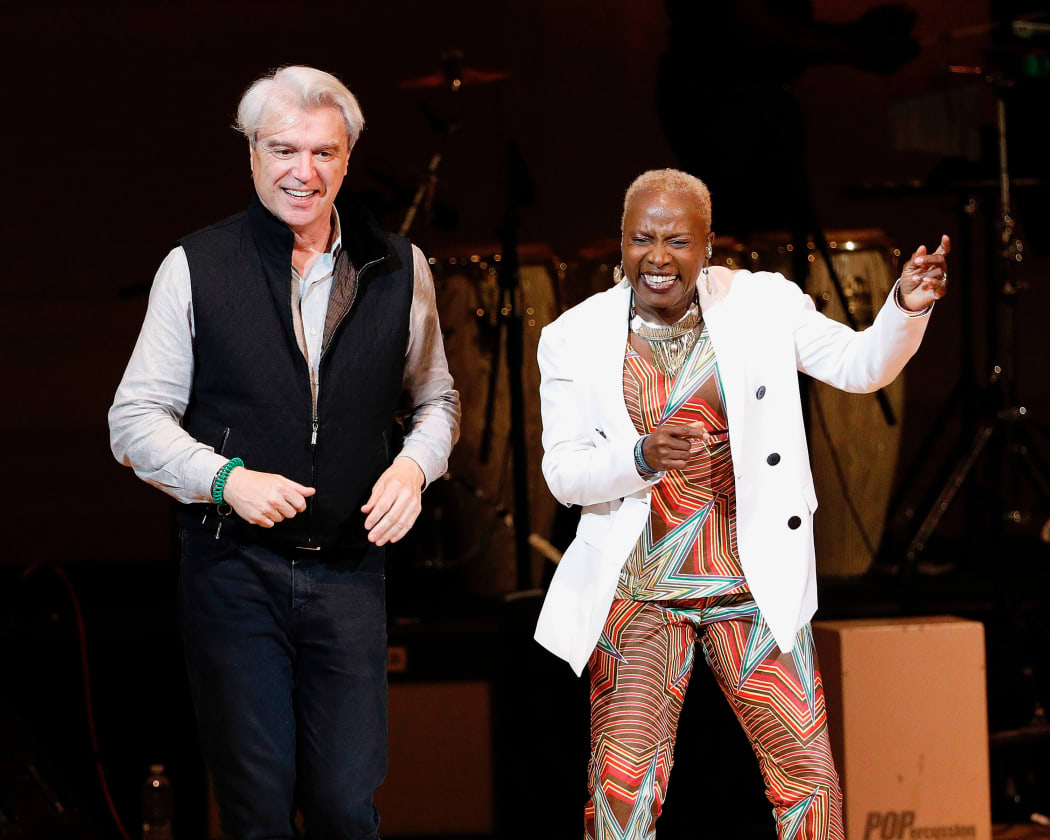Singer/songwriter Angélique Kidjo is from Benin in West Africa. She's known for her diverse musical influences and creative music videos. Her latest project is a reimagination of Talking Heads' 1980 album Remain in Light. She speaks to Kim Hill ahead of her appearance at Taranaki's WOMAD festival.

Angelique Kidjo Photo: Sofia_and_Mauro
African musician and activist Angélique Kidjo has received many accolades during her three-decade career: She's won three Grammys, received the World Economic Forum's prestigious Crystal Award, and been given Amnesty International's Ambassador of Conscience Award.
Kidjo was also the first African women to be appointed as an international Goodwill Ambassador for UNICEF. She set up the Batonga Foundation to empower and educate girls in Africa, and she's Harvard University's 2018 Jazz Master.
Kidjo is coming to New Zealand in March to perform at Taranaki's WOMAD festival. She tells Kim Hill about her escape from Benin, her music, and her politics.
A celebration of African culture, and a reminder of positivity and resilience in the face of adversity is at the heart of Angélique Kidjo's remake of the Talking Heads' 1980 album, Remain in Light.
Nominated in eight different Grammy categories, Kidjo takes Remain in Light back to the West African roots which influenced the original Talking Heads album, with the aim of "reconciling the African people with rock and roll".
Kidjo's work draws similarities between politics during the time of the original album and the Trump era of today.
"I wanted to bring Africa's resilience and Africa's beauty to the Remain in Light original album that was filled with anxiety because it was at the era of Reagan … but what I know for sure, is that fear and anxiety cripples us," she says. "We cannot afford to be crippled - we have to act, thinking always that the light that we carry in our fight will be the redemption of all of this."
African influences can be seen throughout the album, an example being the traditional Beninese chanting in the song, 'Born Under Punches'.

"It was obvious to me when I started this, that all the material that I've gathered when I was doing my album, Eve, all this wonderful, regular, simple chorus women that sang to me their view of the world, and used a lot of proverbs, saying very profound things, have the response to this darkness," she says. Photo: 2017 Taylor Hill
Like the themes seen in this album, Kidjo's own resilience has been put into practice throughout her life. At 23, Kidjo travelled from Benin to Paris in pursuit of the freedom to express her own opinions and values through her music.
The cost was being unable to contact her parents for the six years following her departure.
"My first year in France, I cried every day because I was homesick, and I was, for the first time, experiencing what racism means," she says. "Without music I don't know if I would be talking to you today."
Her parents' reverence towards education, and witnessing the mistreatment of the girls she went to school with, highlighted the importance of educating adolescent girls. This is the priority and goal of her foundation called Batonga - a word that Kidjo invented as a term of defiance against those who questioned or doubted her right to an education.
The Batonga Foundation, founded in 2006, is a data-driven organisation with the aim of providing disadvantaged girls and women in Benin with opportunities to learn and develop skills that will enable them to craft futures that possess more possibilities.
Keeping girls in school assists in the prevention of illegal marriages to children, thus lowering the possibility of adolescents contracting HIV and other sexually transmitted diseases.
"No child, under any circumstances - I don't care what the tradition says [should be] forced into bed [with] a man of forty-five, of fifty, even thirty," she says. "For me it is not a tradition - it's a rape. And that has to stop."
In August 2018, the Batonga organisation reported the launch of an Exemplary Women's Speaker Series, recruiting a number of women with various professions to give presentations to the girls about their lives.
"For most of the girls in our clubs, this is the first opportunity that they've had to get questions answered by a professional woman in this context - a local woman from their own region, not a woman from a big city," says the organisation's website. Developing interpersonal skills and financial literacy can be found in the first phase of the Girls Clubs' curriculum, with the second phase providing information on sexual and reproductive health.
Kidjo, alongside other public figures and artists in Africa, is using her profile to make a difference. "There are people using music, there are people that are using their fame, to talk about issues of female genital mutilation, and girl empowerment and women empowerment," she says.

